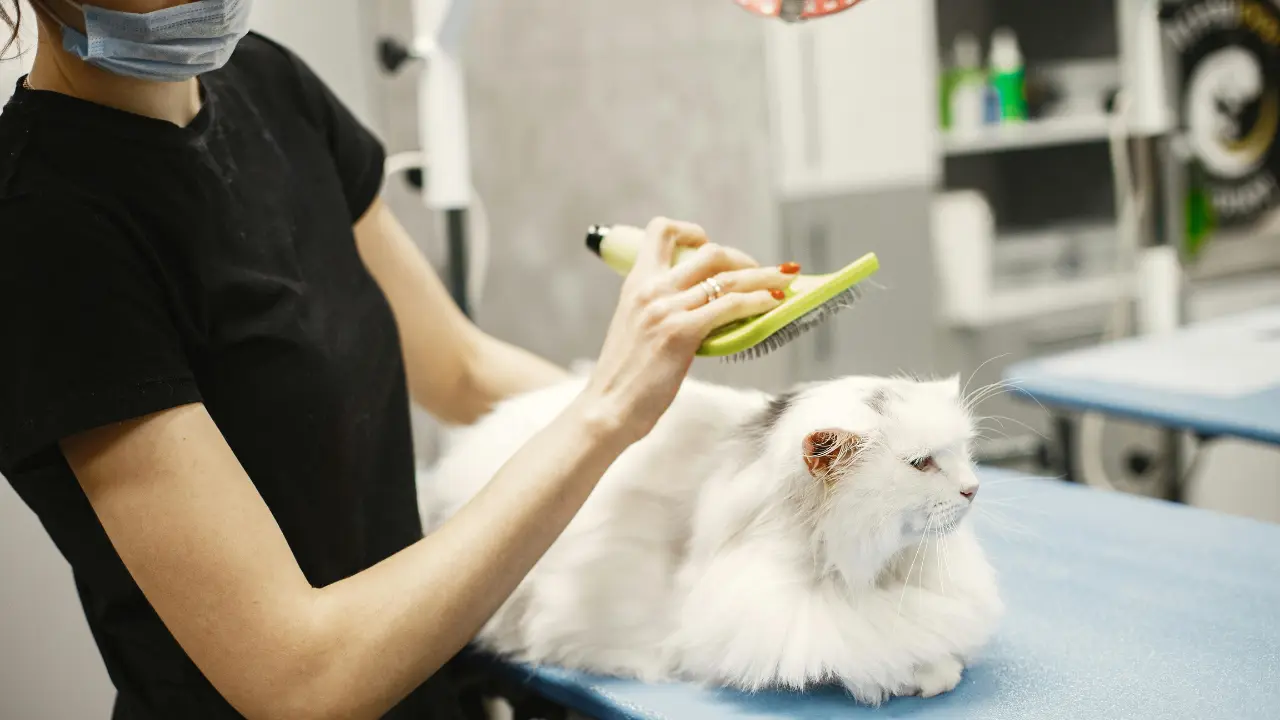Table of Contents
It cannot be denied that the best pets for families with kids is Cats.
A vital component of preventive care is taking your cat to the veterinarian. Who wouldn’t want to offer their kitty companion a better and longer life? It lets you achieve just that.
You might be shocked to hear, though, that only 40% of cat owners and 90% of dog owners, respectively, reported ever visiting a veterinarian, according to a 2020 study.
Cats require frequent appointments to the veterinarian, even if their personalities may be more independent and self-sufficient than those of dogs. This begs the question: How often should you take your cat to the veterinarian?
How often do you have to take a kitten to the vet?

Throughout their first year of life, kittens need to undergo routine veterinary care to ensure they obtain the necessary vaccines, preventive care, and health evaluations. The following is a basic recommendation for how often kittens should visit the vet:
- First visit to the vet at 6-8 weeks of age. This is frequently the time that kittens can have their first round of vaccines after being weaned. Also, the veterinarian will perform a basic health assessment.
- Second vet appointment at 10–12 weeks of age. During this visit, kittens usually receive additional vaccinations, and the veterinarian will continue to check on their general health.
- Third veterinary appointment at 14–16 weeks old. On this visit, more immunizations and health evaluations are administered. At this time, some kittens might also get a rabies immunization.
- Six months old: If not sooner, kittens are often spayed or neutered by the time they are six months old. A general health examination and further vaccines might also be part of this visit.
Adult Cat Vet Visits
Adult cats (one to seven years old) should have annual checkups – though some veterinarians may recommend wellness check-ups every six months for some cats.
If you have a healthy adult cat with no existing medical conditions, annual check-ups should be sufficient throughout your cat’s adult years. However, if your cat has health issues, you may need to visit the vet’s office more frequently than once or twice a year for necessary testing or treatment.
During your adult cat’s annual check-up, your veterinarian typically will:
- Weigh your cat and evaluate their body condition
- Perform a head-to-tail physical examination
- Look at your cat’s teeth – and, if necessary, provide tips for dental care.
- Run routine bloodwork to check your cat’s internal organ functions
- Administer any necessary vaccine boosters
How often should I take my senior cat to the vet?
Compared to their younger counterparts, senior cats—generally defined as those who are seven years of age and older need more frequent veterinary examinations. For senior cats to have proper treatment, early detection of age-related illnesses, and health monitoring, regular veterinary visits are essential. As a general rule of thumb:
- Biannual Check-ups (Every 6 Months)
- Bloodwork and Lab Tests
- Dental Examinations and Cleanings
- Joint and Mobility Assessment
- Nutritional Assessment
- Eye and Ear Examinations
Maintaining an open line of communication with your veterinarian is essential to ensuring the best possible care for your aging feline companion. If you notice any changes in your senior cat’s behavior, appetite, or health, it’s important to consult with your veterinarian right away. Keep in mind that individual health considerations may vary, and your veterinarian may tailor the frequency of visits based on your senior cat’s specific needs and health status.
Is Your Cat Due for a Vet Visit?
If your cat hasn’t been to the vet in the last year, it’s probably time to make an appointment. To make these appointments easier to remember, try writing them down in a planner or making a reminder on your phone or email calendar. Your vet’s office might even offer appointment reminders via email, text, or phone call if you opt in for them.
If you have more question Contact Us.





